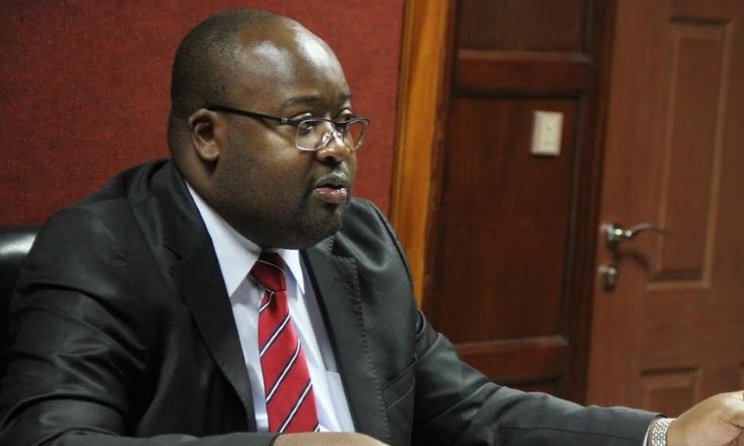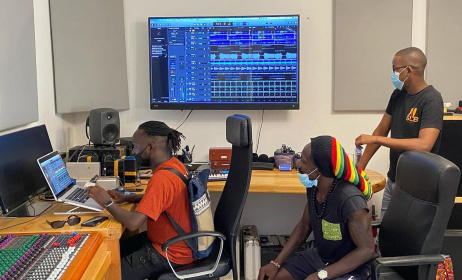Kenya: MCSK asks MPAKE to stop collecting royalties
The Music Copyright Society of Kenya (MCSK) has issued the Music Publishers Association of Kenya (MPAKE) with a notice to cease with immediate effect any further collections of royalties for Kenyan and international copyrighted musical works that are exclusively assigned to the society.
 Justice David Majanja is one of the three judges who delivered the 13 July ruling.
Justice David Majanja is one of the three judges who delivered the 13 July ruling.
In a letter delivered yesterday, the MCSK through its chairperson Lazarus Muoki Muli said MPAKE had no legal basis to act as a collective management organisation (CMO), as its registration and licensing was unconstitutional and violated the provisions of Section 5 of the Fair Administrative Actions Act and Article 47(1) of the Constitution of Kenya.
This development comes after the Kenya Copyright Board (KECOBO) placed an advert in various local newspapers on 19 July highlighting MPAKE, the Performers Rights Society of Kenya (PRISK) and the Kenya Association of Music Producers (KAMP) as the only bodies licensed to collect royalties.
KECOBO's move is in conflict with a Kakamega high court judgment delivered on 13 July by justices Ruth Sitati, David Majanja and Thripsisa Cherere, who nullified MPAKE’s licence to collect and distribute royalties on behalf of copyright holders. They declared that KECOBO’s process of issuing MPAKE with licence No CS 005 on 27 March 2017 was null and void.
The high court sitting also directed the MCSK to account for all licence fees and royalties it collected from 1 January 2017 to date, while KECOBO was asked to proceed with the process of calling for new applications for CMOs under Section 46 (2) of the Copyright Act.
According to the KECOBO advert, the court only declared MPAKE’s 2017 licence invalid and did not raise any issue with a licence that was issued on 17 February 2018. This, KECOBO said, validated MPAKE’s 2018 directive to collect royalties.
A copyright lawyer close to the developments, who spoke on condition of anonymity, told Music In Africa that there was no room for interpretation if a court had ruled a licence null and void.
“If you look at the advert, it is obvious that KECOBO was either misadvised or their intention is to mislead the public,” the lawyer said. “The directives of the ruling are in black and white. In fact, if you ask any lawyer independently, they will tell you that once anything has been declared null and void any other subsequent actions are deemed to be null and void.
"Whichever agreement MPAKE ventured into by virtue of the licence are null and void. Whatever arrangements that were there between MPAKE and any other body are null and void. It is unfortunate that KECOBO, being an institution under the attorney-general’s office, would want to mislead the public as to what the court directed.”
The lawyer said paragraph 37 of the ruling made it clear that the MCSK was at liberty to decide how to collect royalties for its members by virtue of deed of assignment.
Paragraph 37 states: “There is nothing in the Copyright Act which limits the ability of MCSK to collect royalties on behalf of its members and as KECOBO pointed out, the licensed CMO is required to collect royalties on behalf of non-members and it is up to [the] MCSK to decide how it wants to collect royalties on behalf of its members."
An MCSK representative, who also spoke on condition of anonymity, said the CMO would be able to account for all monies it had collected between 2017 to date.
“We have been collecting royalties and licence fees and we have records to prove that,” the MCSK representative said. “However, this past year has been very damaging. We have lost a lot. Currently, we have not been paid for seven months and several of our regional offices have been shut down.
"We have even been forced to dispose of some of our assets just to be able to sustain our offices. So if we are asked to account for the money we have collected, it’s very easy, we have no money.”
"What KECOBO is not coming out and telling the public truthfully is that before we were denied our licence we religiously submitted reports after every three months. At some point it became very hard to collect because KECOBO was not facilitating the enforcement and prosecution process. I think the plan was to frustrate what we do so that the public would lose faith in us and so they could bring in someone they have vested interest in.”
Afro-fusion musician Sam Ondieki said the court’s ruling had triggered a heated debate among musicians, many of whom were only interested in whether royalties would be paid out to them.
“We have waited for an entire year for this verdict,” Ondieki said. “So we are not so much keen in knowing who will be the next CMO. As musicians we want to be paid our royalties before we transfer rights to someone else. We do not know who to believe among the two [MCSK and MPAKE], although the court’s directive is clear.
"Personally, I can openly say that it is impossible for me to trust the MCSK. I have been a member for about 10 years and I am yet to receive a penny, yet my songs have been receiving airplay.”



























Commentaires
s'identifier or register to post comments